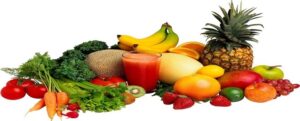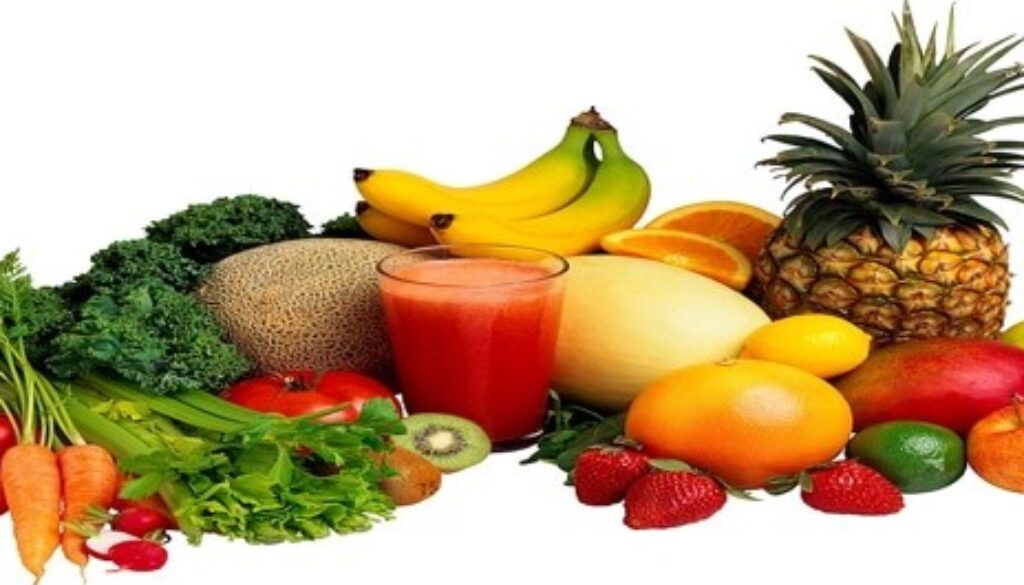Belly Buddies for the Win
By: Michelle MacLuckie, Nutrition Educator and Functional Nutrition Counselor | www.luckiebites.com
Educating your child about digestion and how to build a healthy gut microbiome
As a nutrition educator, I love watching how digestive education changes the way people eat. This is especially true for the littles that I work with in classrooms and organizations around our area. At a recent workshop, one wise six-year-old said to me, “I just eat what I eat. I didn’t know that my food made my body grow. I don’t think candy makes my body strong.” He later told me, after trying four new fruits and veggies during our time together, that he is ready to “feed his body, not just his mouth.” Like I said, he is a wise little kid.
Helping kids to understand what is going in their bodies is an important step in supporting their nutrition. Many children find that learning about their gut microbiome is a little gross but a lot of fun. I mean, talking about farts is always a fan favorite. I have heard so many fart jokes! When learning together, we talk about the parts of our digestive system and the gut bacteria, sing songs to our “Belly Buddies” (the beneficial bacteria in our digestive system), and figure out what to feed those little friends so that we all feel good!
But why is having a diverse and healthy gut microbiome so important for your child? Those belly buddies do so much work in our bodies! They digest or help digest most of our food into components our body can use for energy, growth and repair. The belly buddies are superheroes in our guts fighting things like viruses, molds, fungi, and disease-causing bacteria. But wait, the list goes on! Some of them make serotonin, a feel-good brain hormone and others make short-chained fatty acids that are used as an energy source in colon cells. Children with nondiverse gut microbiomes have more digestive problems such as diarrhea and constipation. They are also at increased risk for having asthma and allergies. Finally, mood and behavior can also be impacted.
Parents are the primary drivers for their children’s food choices, especially when they are young. Understanding all the things that develop or impede a healthy gut in your child helps you intentionally build the belly buddy ecosystem for long-term health and growth. It is hard to believe, but whether your child was born vaginally or through a caesarean, was breast or bottle fed, and if there are pets in the house or not can all impact gut bacteria development. Your own gut and skin microbiomes also play a role. Overuse of antibiotics and eating too many ultra-processed foods encourages “bad” bacteria to grow while getting enough sleep and managing stress in the household does the opposite. Educating your child early and often on the why behind bedtimes and meals at home will help decrease disagreement and increase compliance with healthier habits.
Increasing your own digestive knowledge is helpful for using the correct vocabulary and simplifying explanations. During time spent eating together, ask your child if they ever notice that certain foods feel differently in the body when we eat them. Explaining the why behind food selections at the grocery store helps kids build their knowledge and independence in making good food choices. At the grocery store last week, I heard a kid tell his mom that although he wanted a certain sugary cereal, he didn’t think it would help him at soccer practice before school. I wanted to give that mom a standing ovation!
Helping the littles develop healthy food choices can be as simple as consistently asking them, “Will this food feed our belly buddies or our belly baddies?” You will be amazed at how quickly they will internalize that concept and start telling others. One mom told me that her five-year-old daughter surprised her recently at a family gathering when she asked Uncle Hank if he thought his plate of chicken wings were feeding his belly buddies or belly baddies. Uncle Hank had never, in fact, considered that question before and was left a little speechless.

One of the best ways to make sure that your child is feeding their belly buddies and building a diverse gut microbiome is to build in more fruits and veggies into your family’s food rotation and traditions. Here are a few simple ways to start:
- For after school snacks, put a tray of fruits and veggies out when kids get home while you are making dinner. I like to call it “the fest”.
- Have the kids do weekly prep of the after-school fruit and veggie fest. Cookie cutters and kid-safe knives can make your after-school fest not only good for their bellies, but good for their creativity too!
- Remember that kids taste things more intensely than adults and choose fruits and veggies wisely.
Some children struggle to try new foods. This is not unusual and is often developmental. Here is my approach which has been successful with most hesitant littles. First, build in choice but not too much choice. I will typically choose two untried foods and ask them to pick one. Next, cut the food into very small pieces, like as small a pea or smaller. Better yet, if appropriate, have them help you cut the small pieces. Encourage the child to smell the food, to think about the food growing, and to taste it with their tongue before popping it in. Give them time and space to think about the food and its texture and taste. You can ask questions like, “Did it taste the way you thought it would? Does it taste like anything else that you have already tried? Do you think your belly buddies will like it?” If they go through this process and determine the food is not for them, respect that choice. Some professionals advocate sneaking in fruits and veggies into other preferred foods. I don’t have a problem with making healthy recipes, such as macaroni and cheese with added butternut squash, but the problem is the sneaking part. We want our children to trust us, and we also want to be able to get them to eat a wide variety of healthy food. Both of those things can be negatively impacted if we are not transparent. Additionally, we want our littles to grow into bigs that can make independent healthy food decisions. Sneaking doesn’t support the education needed for this independence.
Developing your child’s belly buddies and body intelligence around digestion can lead to many positive and lasting outcomes. It can also be an avenue for turning dinner fights into dinner fun! I mean, does one ever really get tired of a good fart joke?
Michelle MacLuckie
Nutrition Educator and Functional Nutrition Counselor
Luckie Bites
Michelle MacLuckie is a retired special education teacher with over 30 years of experience working with individuals of all ages and learning needs. Following her own health crisis several years ago, Michelle started Luckie Bites, a small business providing nutrition education to a wide variety of audiences. Michelle recently added Functional Nutrition Counseling to her services at the request of nutrition class students who wanted more individualized support in applying their learning into their lives.



